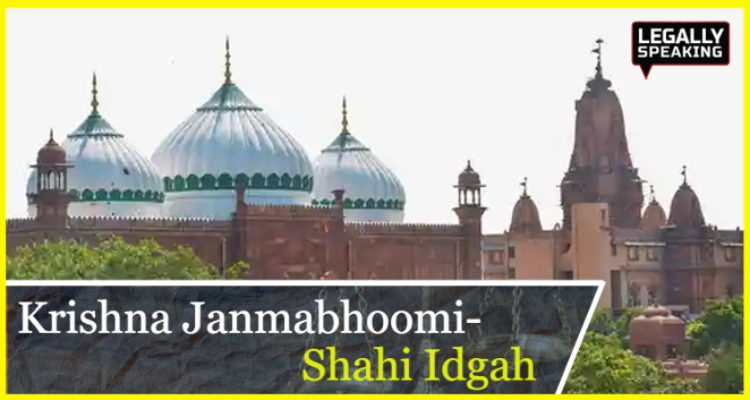
The Hindu side in the Shri Krishna Janmbhoomi and Shahi Eidgah suit countered the Muslim side’s contention in the Allahabad High Court, asserting that the dispute pertains to a Waqf property.
The property in question, according to their argument, was originally a temple.
“After taking forcible possession of the same they started to offer Namaz but by this, the character of land cannot be changed,” stated the counsel for the Hindu side, emphasizing that it was not a Waqf property and therefore, the Wakf Act does not apply to it.
“Since it is not Waqf property, this court has the jurisdiction to hear the matter,” added the counsel.
Muslim Side
The Muslim side had questioned the maintainability of the suit, contending that the disputed Shahi Idgah Masjid is a Waqf property, and thus, the jurisdiction to hear the matter lies only with the Wakf Tribunal, not with the civil court.
The Judge
Justice Mayank Kumar Jain, presiding over the petitions on the maintainability of the suit, scheduled the next hearing for April 30, 2024. Responding to the arguments from the Muslim side, the Hindu side submitted that the suit is maintainable, and the question of non-maintainability can only be decided after leading evidence.
“The plea regarding the application of Places of Worship Act as well as Waqf Act can only be determined by evidence by the parties in suit and cannot be decided while hearing an application under Order 7 Rule 11 of Civil Procedure Code,” stated the counsel.
Earlier, Vishnu Jain, representing the Hindu side, had emphasized that merely stating that now a mosque stands on the property does not automatically invoke the Wakf Act. He stressed that the religious character of the property cannot be altered merely by demolishing it and argued that it must be determined whether the alleged Waqf deed is valid or not. “If the property is not valid property of Waqf, it would not be a valid Waqf. All these things are to be seen during the trial and thus the present suit is maintainable,” he asserted.




